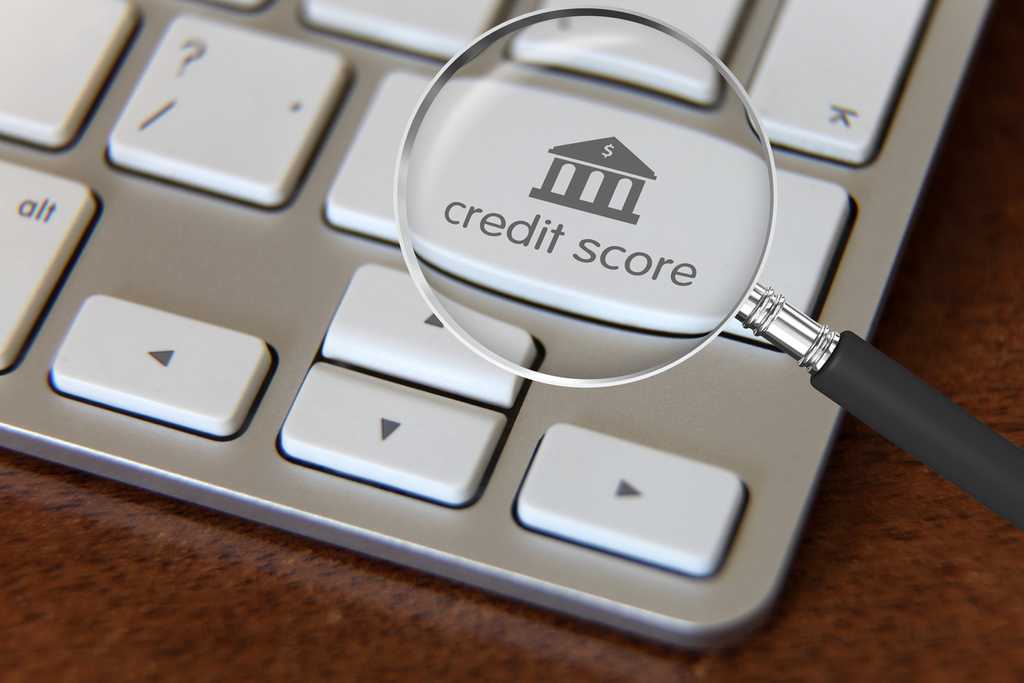Your credit score is an important number that can affect anything from your ability to get a loan or credit card to your ability to get hired for a job. It’s important to maintain a good credit score so that lenders will see you as a good bet to lend money to, allowing you to finance major purchases like a house or a car.
When it comes to checking your credit, there are two types of inquiries: hard and soft. A hard inquiry is what a creditor will run before lending you money, while a soft inquiry is more likely to be part of an employment screening or a self-credit check. Hard inquiries can affect your credit score, while soft inquiries generally don’t have any impact on your credit score. Learn more about the difference between the two, and which types of checks are considered hard vs. soft.
What is a hard credit inquiry?
A hard credit inquiry, also known as a hard credit pull, occurs when a lender checks your credit to determine whether or not to grant you a loan or issue you a credit card you’ve applied for. If you apply for a mortgage, car loan, credit card, or even store card, the financial institution will perform a hard credit pull to look at your credit score, credit usage, repayment history, default history, and more. That will help them determine whether it’s a smart idea to approve your loan or credit card, or whether it’s in their best interests to deny your application.
Before a financial institution can perform a hard credit inquiry, they must have your permission. A hard inquiry can have a small effect on your credit score, so it’s a good idea to avoid hard credit pulls unless absolutely necessary.
It’s smart to keep an eye on your credit report for hard inquiries that you didn’t authorize, as this can be a sign of credit card fraud. Keep track of which hard inquiries you gave permission for, and report any you didn’t to one of the three main credit bureaus (Experian, Equifax, and TransUnion).
What is a soft credit inquiry?
A soft credit inquiry can occur when a future employer runs your credit as part of their pre-employment check after making a preliminary job offer. Alternatively, it can occur when a financial institution checks to see whether your credit is good enough to send you a credit card offer in the mail. Checking your own credit score is also considered a soft inquiry, also known as a soft credit pull.
A soft credit inquiry can take place without your consent. It does not have an effect on your overall credit score. You may see a large number of soft credit inquiries on your credit report, but this isn’t cause for alarm.
Difference between soft and hard credit inquiries
There are a few main differences between soft and hard credit inquiries. The table below explains these differences.
| Soft credit inquiries | Hard credit inquiries |
|---|---|
Performed by creditors who want to determine whether to offer you a credit card or loan | Performed by lenders when you apply for a loan or a credit card |
Do not have an effect on your credit score | Have a slight negative effect on your credit score |
Can be performed without your permission | Require your written consent to be performed |
Examples of hard and soft credit inquiries
Now that you understand the difference between a hard credit pull and a soft credit pull, let’s take a look at some examples of each. The table below includes the most common examples of each type of credit inquiry, though this list is not exhaustive.
| Examples of hard credit inquiries | Examples of soft credit inquiries |
|---|---|
Application for a mortgage loan | Self-checks of your own credit |
Application for a car loan | Employment verification |
Application for a personal loan | Verification of credit score for insurance quote offers |
Application for a student loan | Verification of credit score for credit card offers |
Application for a credit card | |
Application to rent an apartment |
How hard inquiries impact your credit score
A hard credit inquiry has a negligible effect on your credit score; i.e., it may decrease your credit score by a few points but won’t have a major effect. A hard credit pull can remain on your credit report for up to two years before dropping off.
If you apply for multiple credit cards or loans at once, or within a short period of time, the effect on your credit score may be more substantial. Additionally, a large number of hard credit inquiries can signal to potential lenders that you may be a risky customer to lend to. Financial institutions don’t want to lend money to people who have a history of missed payments or who have a large number of credit cards with high balances. And if your credit score has a lot of hard inquiries in a short period, it signals to the lender that you may be racking up debt or using credit cards to pay for things if you’re short on cash.
If you’re shopping around for a good rate on a mortgage or car loan, the credit rating agency may group these inquiries into one hard pull to prevent it having too large an impact on your credit.
How soft inquiries impact your credit score
Soft credit inquiries do not have an impact on your credit score. If you check your own credit you will be able to see that a soft inquiry was performed, but your actual credit score won’t be impacted. And if a potential lender runs a hard credit inquiry on you, they won’t be able to see those soft credit pulls on your report.
Checking your credit report
Checking your credit report on a regular basis is a good habit to get into. Doing so can help you identify fraudulent credit cards or loans under your name and report them as you see them. You can also freeze your credit if you notice anything suspicious, which means lenders won’t be able to run a hard inquiry on you until you unfreeze your credit.
You can also reach out to the Consumer Financial Protection Bureau (CFPB) to report any unauthorized credit inquiries, as this can be a sign of identity theft. By checking your credit report frequently, you can get ahead of identity theft cases before they go too far and start seriously affecting your life.
Summary
Hard and soft credit inquiries are two very different ways of checking your credit. A hard inquiry needs your consent before it can be run by a potential lender, and it can have a small effect on your credit score. A soft inquiry doesn’t need your permission to be run, and is typically used by lenders who want to verify your eligibility before sending you a credit offer. It’s important to know the difference and to keep an eye on your credit report so you can quickly identify any unauthorized hard credit pulls and report them to the authorities.

